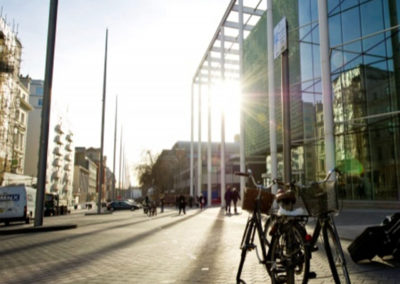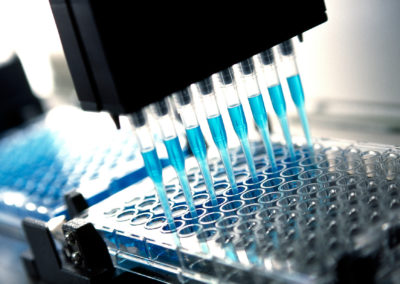Stabilising the Leaning Tower of Pisa
Emeritus Professor Burland, a soil mechanics engineer, was selected by the Italian Government to help re-position and stabilise the Leaning Tower of Pisa as part of a 14 strong rescue committee.
Commenting on the 11 year long project Professor Burland said that it had been the experience of his lifetime.
The ultimate challenge
The Tower first acquired its characteristic tilt in 1173, when the second floor was constructed, and continued to tip 1mm per year from then on. The following centuries saw several attempts to rectify the problem, including the injection of cement grout into the foundations to strengthen them, but it wasn’t until the rescue committee intervened in 1990 that real progress began.
Professor Burland and the committee worked on the project for 11 years, removing 38 cubic metres of soil from beneath the raised section of the tower to straighten it back 45cm and return it to a position previously seen in 1838. But their job was not complete: the Tower still showed signs that it was unstable and would continue to tilt.
After years of research, the committee found that the south side of the water table was higher than on the north. When it rained in winter, the water table would temporally rise on the north side, lifting the foundations by a small amount and causing the Tower to move a little further towards the south each year. With the installation of drains to control the water table on the north side, the project finally drew to a triumphant close.
Once the Italian government were convinced of the Towers’ stability, work began to restore it back to its former glory. Unveiled in its current state only recently, the leaning Tower of Pisa stands proud today and should do for the next 400 years.
Soil Mechanics research at Imperial is housed within one of the best Civil Engineering departments in the UK and has received the highest possible rating (5*) for research excellence.
Share post:
Related case studies

Exhibition Road Showcase
Our consultants shared their expertise in traffic monitoring and evaluation for the Royal Borough of Kensington and Chelsea when they began work on the Exhibition Road shared space scheme. read more

Efficient mango drying
Our consultants shared their exertise in sustainable energy solutions in helping global fair-trade company Fullwell Mill to increase energy efficiency of their mango production process. read more

Imperial COVID-19 testing facilities
Imperial's facility, comprising the UKAS accredited Molecular Diagnostic Unit (MDU) and high-throughput robotic platform for RNA extraction, forms part of the Department of Health and Social Care's partnership with the London Testing Alliance, set-up by MedCity. read more
